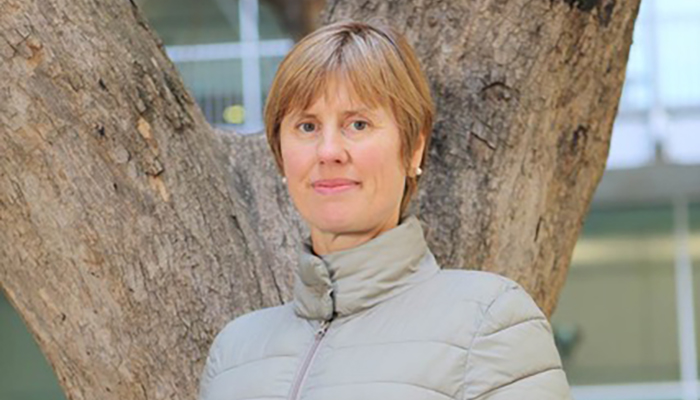How EMBL can support its alumni: an interview with Fátima Gebauer

After a new EMBL Alumni Association (EAA) Board was elected in May 2019, incoming members were keen for their activities and aims to be endorsed by feedback from the community. This is why incoming Chair Fátima Gebauer asked the Alumni Relations team to conduct their 3-yearly alumni survey to coincide with the first meeting of the new board: “It enabled the board to have immediate feedback from the whole alumni body on initiatives the board wanted to introduce.”
Fátima, who was a postdoc and later staff scientist in the Hentze Lab at EMBL Heidelberg, is now a Group Leader at the Center for Genomic Regulation in Barcelona. She has been a board member since 2016, and is keen to ensure that all alumni are aware of the opportunities available to them. She explains: “EMBL has helped me a lot. I think it can have as positive an impact on the life of other alumni as it’s had on mine. I’m very happy to work for the community to make this relationship better for everyone.”
Career support, sabbaticals and mentoring opportunities
The results of the survey, called ‘How EMBL can support you’, highlighted some clear needs, the most widespread being demand for sabbatical opportunities at EMBL, as well as more career support and mentoring opportunities for staff and alumni. These formed the basis of discussions at the first meeting of the new EAA board at EMBL Barcelona in January. See table below for top five items alumni voted as most important to them.
| Most requested resources by alumni in response to ‘How EMBL can support you’ survey |
| 1. Sabbaticals at EMBL |
| 2. Help with grants |
| 3. Leadership training |
| 4. Mentoring |
| 5a. EMBL faculty-level lectures at alumni institutes |
| 5b. Alumni faculty-level lectures at EMBL |
Members decided that the first step would be to form working groups: one led by Ramesh Pillai and Anne-Sophie Huart on exploring opportunities for training, sabbaticals and internships at EMBL, and another on a potential ‘alumni advisory programme’ for EMBL staff and alumni led by Marina Chekulaeva and Anne-Marie Glynn.
Fátima says: “The working groups will now work closely with the Alumni Relations team to contact relevant people at EMBL, and explore what already exists, what can be further developed and implemented, and how best to improve the way we communicate these.” At their next meeting in July, the board will assess their findings and establish a plan based on their recommendations.
The survey also allowed EMBL to identify a large group of alumni volunteers, offering concrete suggestions on how they can help with the initiatives that support alumni. This list is being reviewed and alumni who offered to volunteer will be contacted once the needs arise.
Better communication with alumni
The need to more effectively communicate EMBL resources and opportunities to alumni was a point that came up both in the survey and in the discussions at the board meeting.
According to Fátima, “Some of the needs identified through the survey could simply be addressed if alumni were made more aware of what already exists.”
Work is already underway to improve the EMBL website, and a brochure is being developed that better presents the resources available to alumni. Furthermore, there will be articles and dedicated emails communicating opportunities and benefits available to all.
The Alumni Relations team will also conduct a survey exploring the effectiveness of EMBL’s previous communications channels and content with its alumni, which will inform future communications strategy.
Meanwhile, Fátima is looking forward to leading the board into the coming years. She said: “I hope that during this term, we really strengthen the synergistic relationship between EMBL and its alumni, and that alumni realise how positive the impact can be, both on the life sciences and to them personally.”